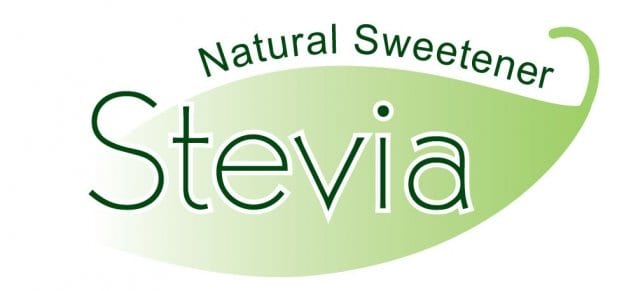They say Stevia is 300 times sweeter than sugar and is said to be beneficial to Type 2 diabetics. If you haven’t heard of it before, read up because it’s coming to America.
I suppose it may be more correct to say that people will see Stevia derived products more. It has been available here as a dietary supplement, but it is now moving forward as a food additive.
The worlds two largest soft drink manufacturers are embracing the idea of using Stevia-based products because it has the benefit of being natural and has been linked as a product that may be helpful to people with Type 2 diabetes.
Rebiana is a stevia-based sweetener developed by Cargill and Coca Cola while Pepsi has developed PureVia. You can expect drinks to begin showing up on shelves made from the Stevia derivatives.
Wikipedia reports, “Stevia has garnered attention with the rise in demand for low-carbohydrate, low-sugar food alternatives. Medical research has also shown possible benefits of Stevia in treating obesity and high blood pressure. Because Stevia has a negligible effect on blood glucose, it is attractive as a natural sweetener to people on carbohydrate-controlled diets.”
Asian counties have been using Stevia since the 1970’s with as much as 40% of their sweetener market going to Stevia products. The product was banned in the US as a food additive until December of 2008.
Health Benefits With Stevia?
The same Wikipedia entry suggests. “For centuries, the Guaraní tribes of Paraguay, Bolivia and Brazil used Stevia, which they called ka’a he’ê (“sweet herb”), as a sweetener in yerba mate and medicinal teas for treating heartburn and other ailments. More recent medical research has shown promise in treating obesity and hypertension. Stevia has a negligible effect on blood glucose, even enhancing glucose tolerance; therefore, it is attractive as a natural sweetener to diabetics and others on carbohydrate-controlled diets.”
Dr. Patrick B. Massey has suggested that Stevia has some very interesting properties. It has no calories but has actions similar to several currently used medications. It stimulates the release of insulin and normalizes the response to glucose, especially in type 2 diabetes. It is used in Latin America as an inexpensive therapy for hyperglycemia.
A research project known as Oviedo reported, “A 35.2% fall in normal blood sugar levels 6-8 hours following the drinking of a Stevia leaf extract. Similar effects have been reported in humans and experimental animals by other researchers. These kinds of results have led physicians in Paraguay to prescribe Stevia leaf tea for the treatment of diabetes. Similarly, in Brazil, Stevia tea and Stevia capsules are officially approved for sale for the treatment of diabetes. The best part: Stevia does not lower blood glucose levels in normal people.”
Stevia derived products Truvia and PureVia have also been made available in the U.S. for consumption. These sweeteners are zero calorie, kosher, gluten free and can be used in any recipe calling for sugar.
The PureVia website suggests, “With zero calories and just two grams of carbohydrate per serving, PureVia is suitable for people with diabetes. Reb A, erythritol and isomaltulose do not affect blood glucose levels or interfere with insulin. PureVia offers people with type 1 and type 2 diabetes greater variety and flexibility in budgeting total carbohydrate intake.”
As with any issue important to your health you are encouraged to talk to your primary health care provider to determine if a Stevia product might benefit your health management goals.
